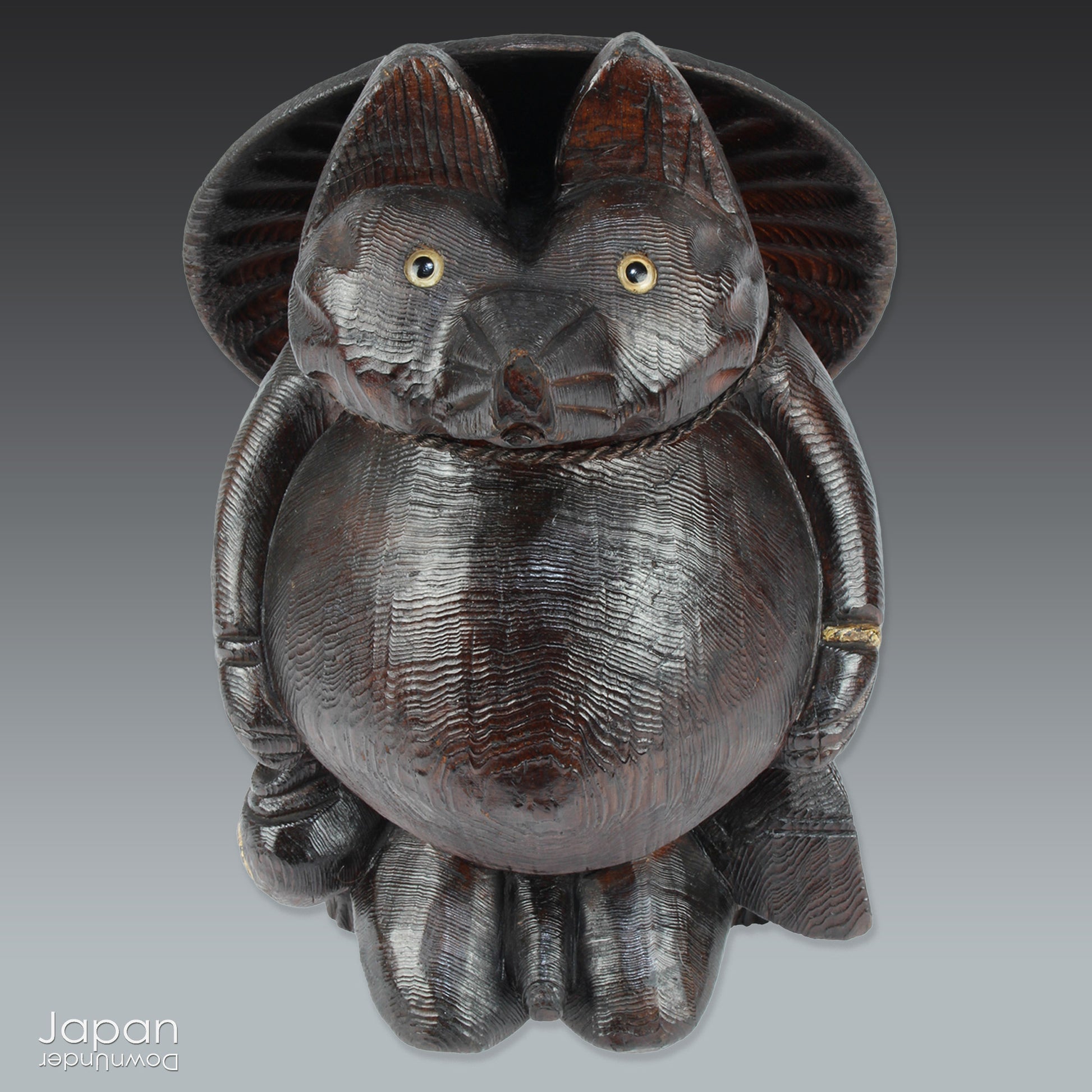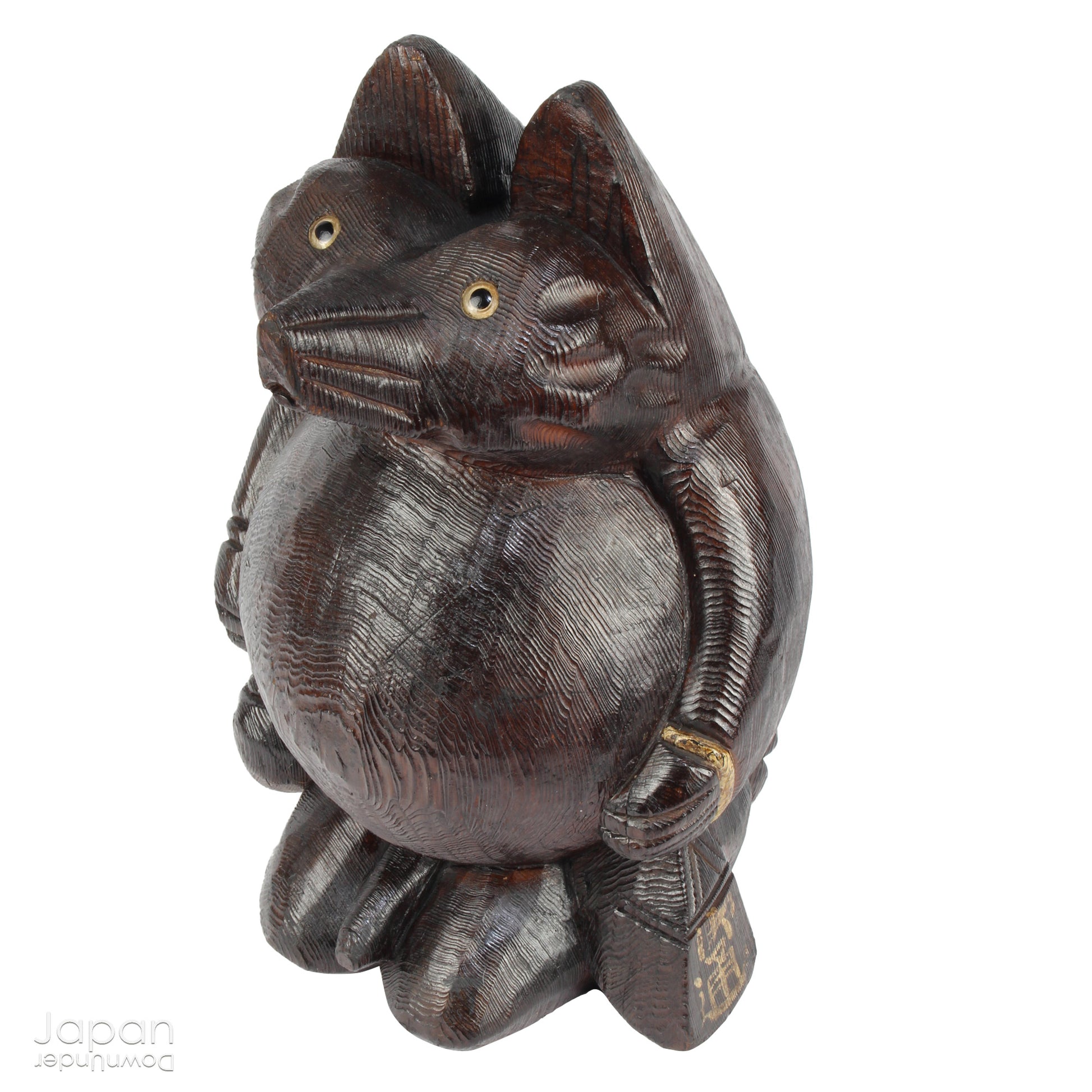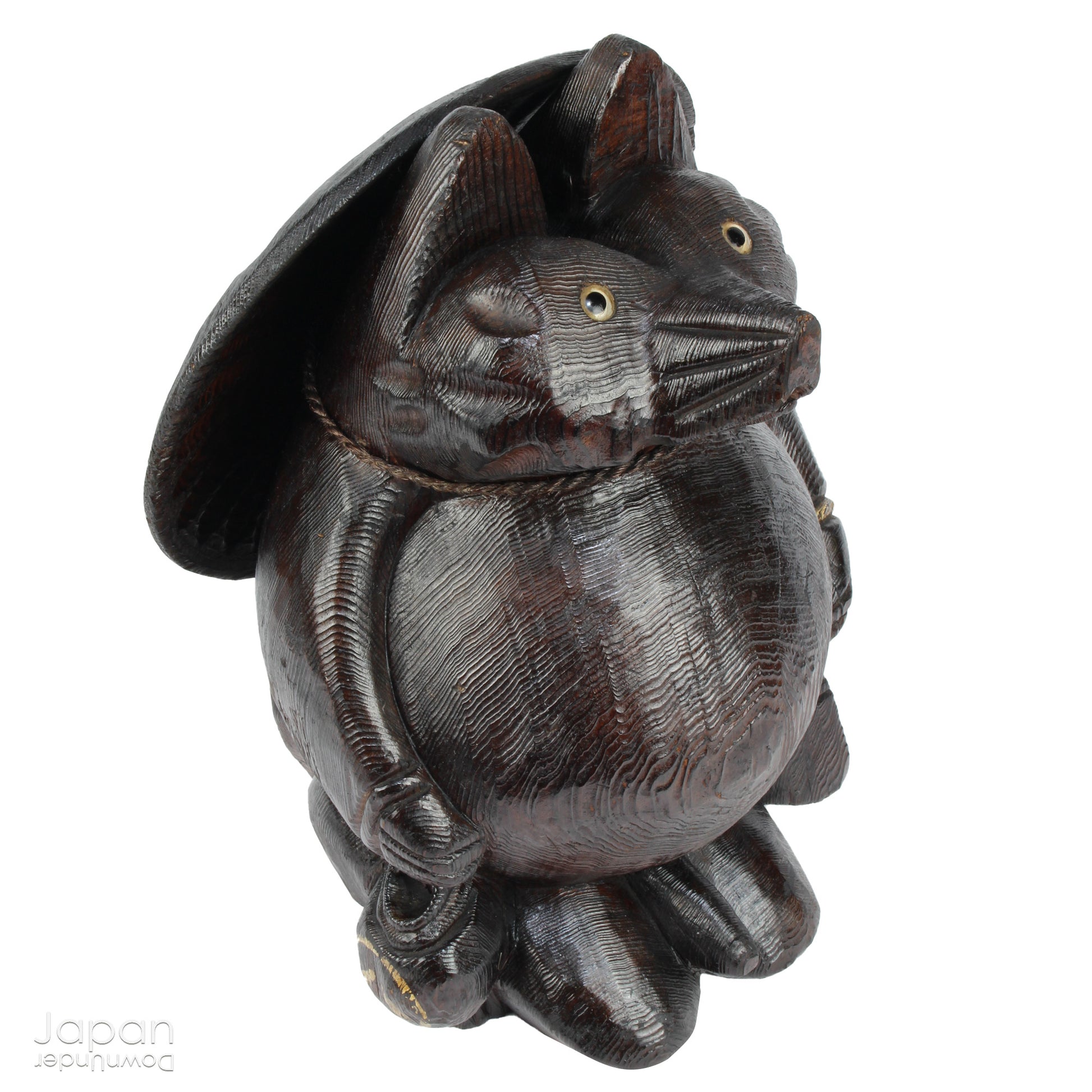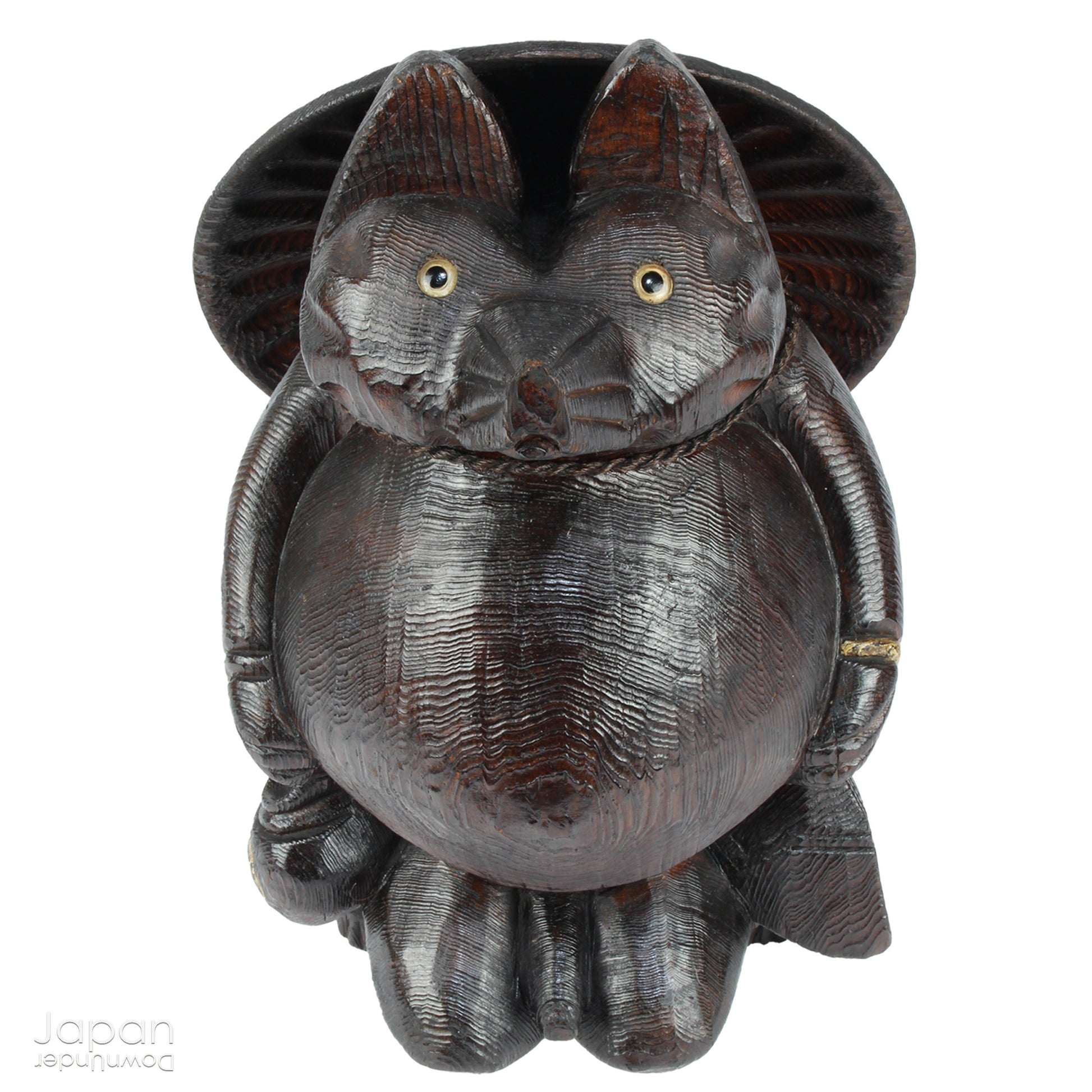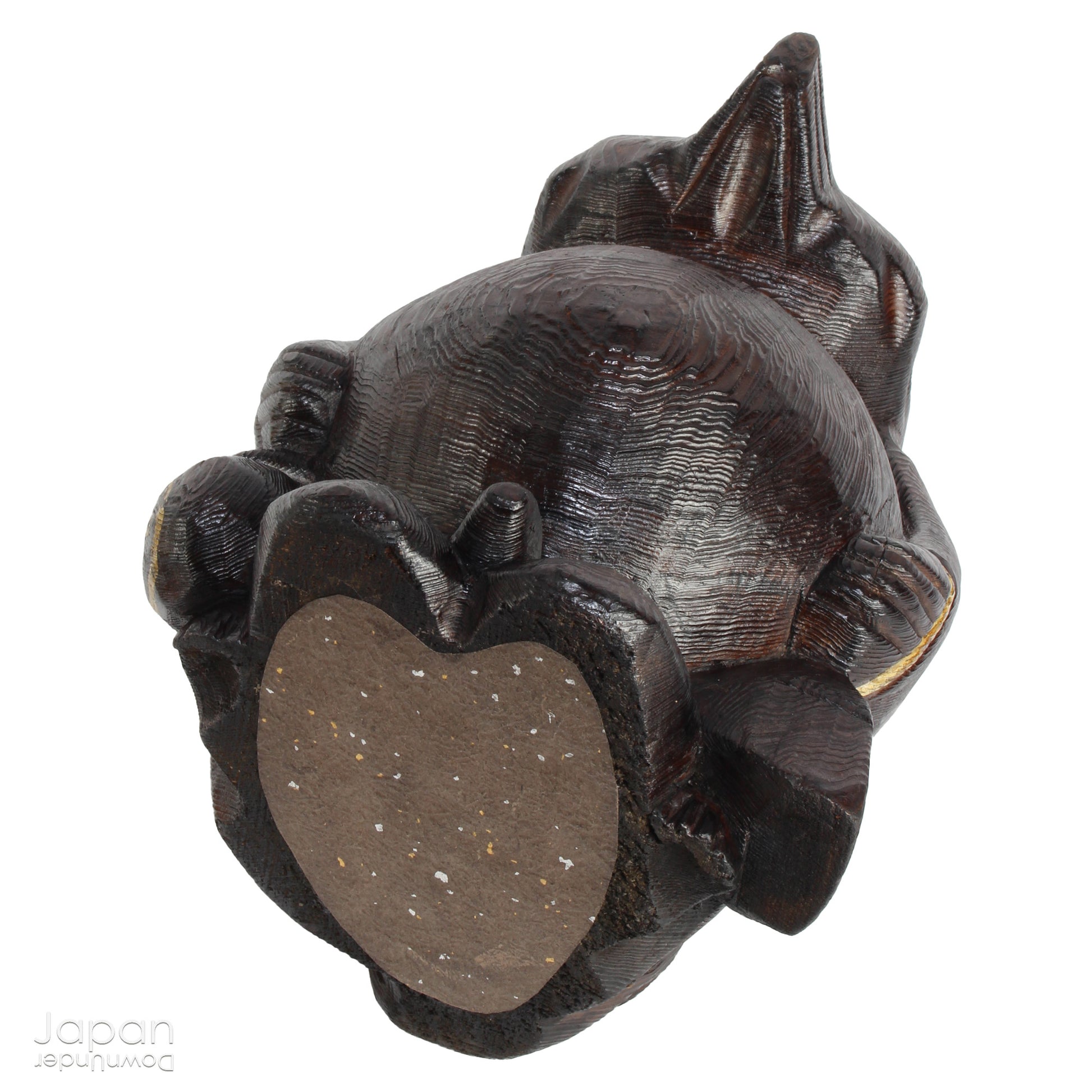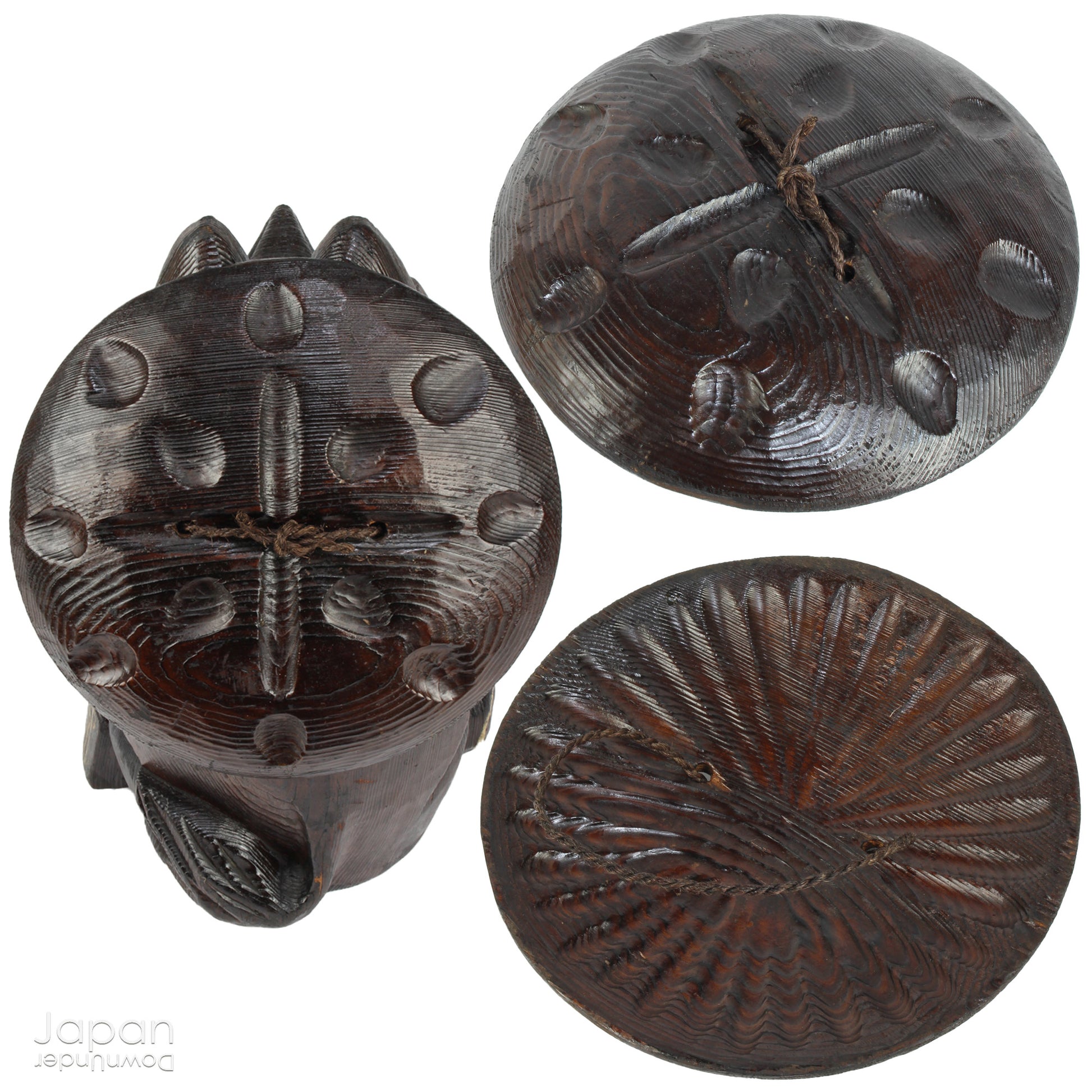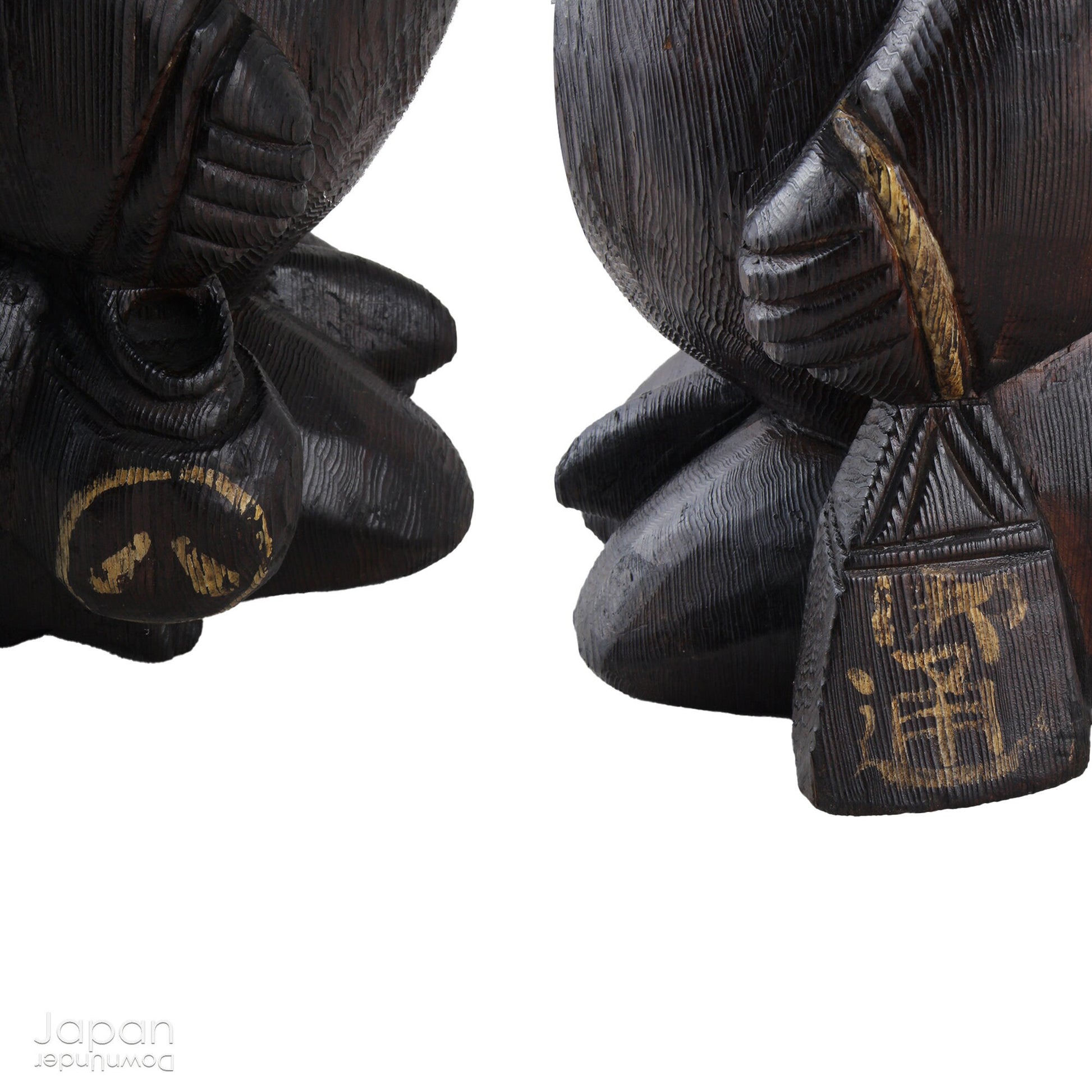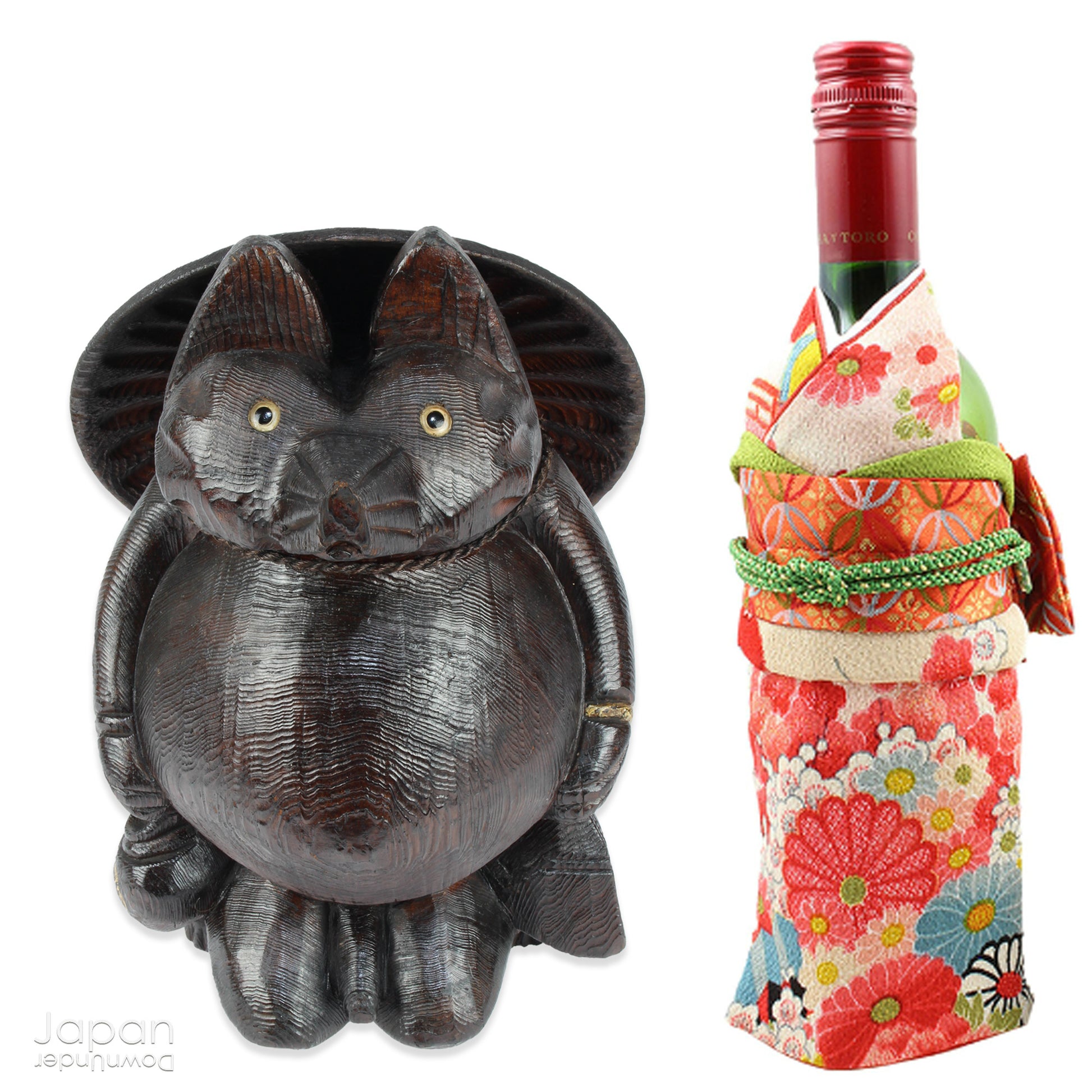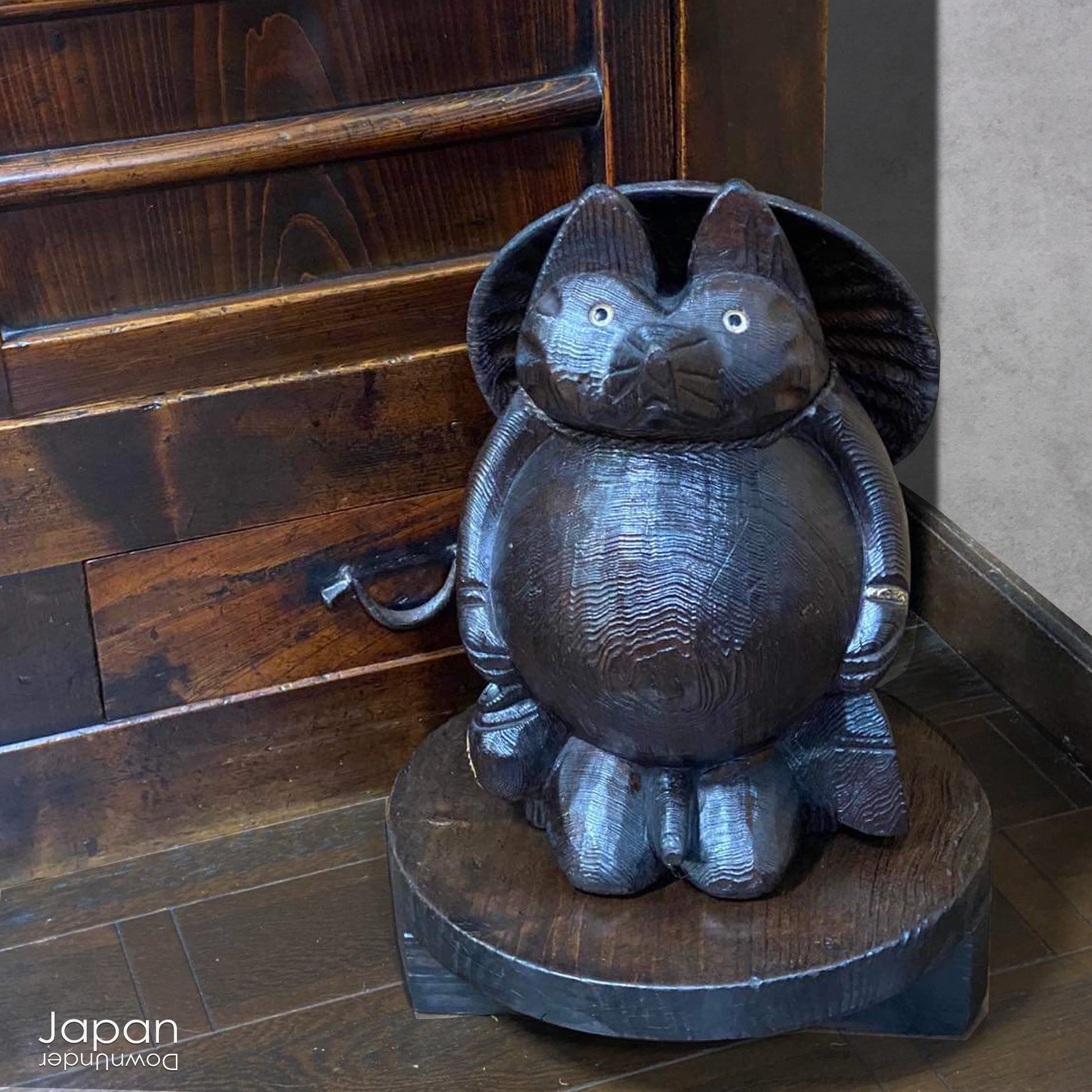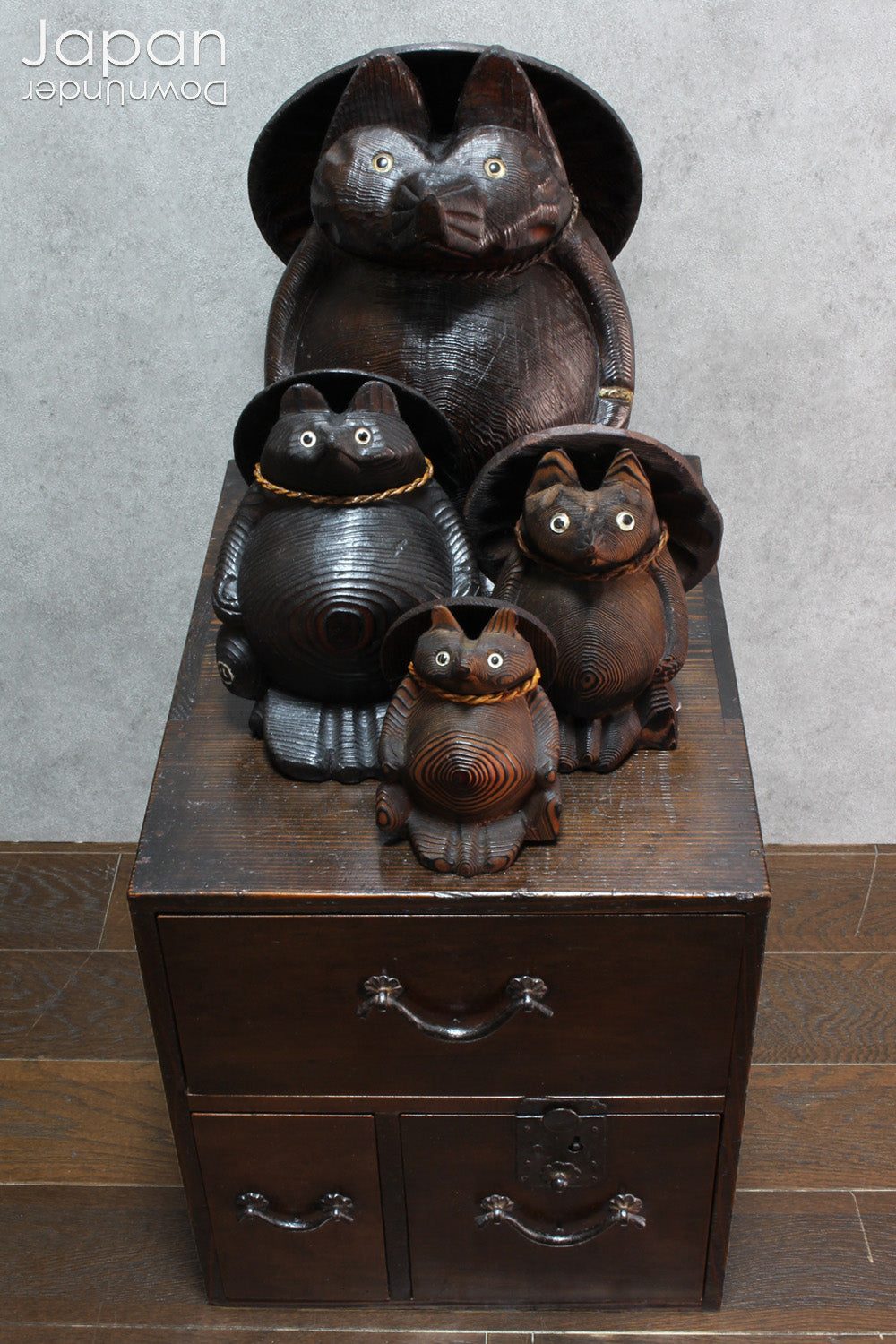JapanDownUnder
large antique japanese tanuki wood carving - folk art lucky charm
large antique japanese tanuki wood carving - folk art lucky charm
Couldn't load pickup availability
Love Japanese Style Like We Do
Bring home a delightful piece of traditional Japanese folk art with this exceptionally rare and impressively large antique wooden tanuki - a beloved symbol of good luck, prosperity, and playful mischief in Japanese culture.
In Japanese folklore, the tanuki (raccoon dog) is a cheerful and mythical creature known for attracting fortune and business success. You’ll often find ceramic tanuki outside restaurants and pubs across Japan, welcoming guests with their cheeky grins and rotund charm.
What makes this figure truly special is not just its size - seldom found today - but its origin and craftsmanship. These wooden tanuki were originally crafted as souvenirs for visitors to famous hot spring resorts and regions closely associated with tanuki folklore, such as Shigaraki, renowned for its ceramic tanuki production, and Morinji Temple in Tatebayashi, a site devoted entirely to this lucky creature.
Each carving, like this one, is a unique work of art, handcrafted from fallen sugi (Japanese cypress) trees. Artisans thoughtfully used the tree’s natural grain to highlight the tanuki’s plump, rounded belly, with rippling concentric circles extending from the navel - a beautiful and symbolic touch. His pointed ears, long nose, and chubby cheeks give him a lovable, comical expression, enhanced by glass eyes that gaze upward with an air of curiosity. A large, removable hat - tied around the neck with string - completes his charming look.
This figure proudly displays the traditional "Eight Lucky Tanuki Virtues":
A big hat (for protection from trouble),
Big eyes (to see opportunities),
A smiling face (for kindness),
A big belly (symbolizing calm decision-making),
A sake flask (for virtue),
A promissory note (representing trust),
A strong tail (for steadiness),
And a giant scrotum (a traditional symbol of financial luck and boldness).
Traditionally, these carvings were made in various sizes - from petite 6 cm (2.3") charms to larger 40 cm (15.7") pieces. In keeping with Japanese tradition, collectors would start with a small tanuki and replace it each year with a slightly larger one to grow their good fortune.
This particular tanuki is an especially rare large size (12.5 cm tall ) - a true find. He’s in good antique condition, free from cracks, with only minor nicks and wear that speak to his age and history. Full of character and warmth, he makes a wonderful addition for collectors of Japanese folk art, and a fantastic statement piece for bar decor or any space in need of a little good fortune and charm.
- measures 32 cm ( 12.5”) tall x 20 cm (7.9”) across x 17 cm (6.7”) deep.
- weighs 1,550 gm.
(listing for large wood tanuki figure only)
SHIPPING INFORMATION
- please read our shipping notes in shipping policy.
- we use recycle packaging wherever possible and wrap for safety, rather than appearance!
ABOUT OUR VINTAGE, ANTIQUE AND OTHER ITEMS
We list pieces we feel are worthy of display. There may be scratches, dents, fading and signs of wear and tear. We try to explain the condition of each item exactly, but may miss something.
Information regarding the item and it’s age is obtained from dealers and our personal research. We do our best to give you the correct information but please be aware that we cannot guarantee this information.
Please message us prior to purchase with any questions you may have about our products.
TANUKI
Tanuki folklore, originating from Chinese fox-lore, often depicts the animals as shape-shifters with supernatural powers and mischievous tendencies. In their earliest malevolent manifestations, Tanuki assumed human form, haunted and possessed people, and were considered omens of misfortune. Many centuries later in Japan, they evolved into irrepressible tricksters, aiming their illusory magic and mystifying belly-drum music at unwary travelers, hunters, woodsmen, and monks. Today, the Tanuki are cheerful, lovable, and benevolent rogues who bring prosperity and business success.
Ceramic statues of Tanuki are found everywhere in modern Japan, especially outside bars and restaurants, where a chubby Tanuki beckons drinkers and diners to enter and spend generously.
The fun-loving Tanuki is commonly depicted with a big tummy, a straw hat, a bewildered facial expression (he is easily duped), a giant scrotum, a sake flask, and a promissory note (that he never pays).
Tanuki has eight special good luck symbols:
1. His big straw hat protects him from bad weather or bad luck falling from the sky, symbolizing being prepared for unexpected trouble.
2. His big belly symbolizes level headedness and composure.
3. His tail symbolizes unflinching determination and perseverance.
4. His promissory notebook symbolizes honesty and gaining the trust of others. The shortened kanji for tsucho (promissory note book), ‘tsu,’ is often written on the front of the book.
5. His smiling face symbolizes kindness and a welcoming attitude.
6. His big round eyes symbolize discernment and making informed, good decisions.
7. His sake flask symbolizes thankfulness for ones’ daily food. Maru (circle) hachi (8), the kanji for number eight written inside a circle, often appears on the sake flask. This circle was actually the family crest of the Tokugawa family in the Edo era, but now reminds us of the eight lucky virtues of the tanuki figure.
8. His giant scrotum, (kinbukuro in Japanese and literally meaning gold bag), symbolizes good luck with money and the spreading of wealth.
Although the Japanese continue to classify Tanuki as a yōkai (monster or spirit), the creature today is no longer frightening or mysterious. Instead, it has shape-changed into a harmless and amusing fellow, one more interested in encouraging generosity and cheerfulness among winers and diners than in annoying humankind with its tricks.
ENGIMONO
Engimono are charms that bring good luck for such things as an abundant harvest, successful business, loving relationships or good health. Engimono are often available at New Year events in shrines and temples. They are also popular souvenirs, bought when travelling to different places in Japan. There is a variety of Engimono in different areas in Japan. These good luck charms have been passed down through history. Some popular engimono are Eto ornaments (the 12 Japanese zodiac animals), Shinobu Goma, a lucky horse for a good harvest from Iwate Prefecture and Aka Beko a red paper mache cow with a swinging head from Fukushima, thought to fend off evil and disease. Some other well known engimono are Daruma, Tanuki, Shisa and Maneki Neko.
Share











